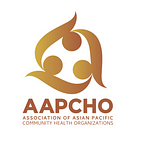What are Healing Conversations and Why Do We Need Them?
By: Michelle Tu and Kristine Cecile Alarcon
Asian American (AA), Native Hawaiian and Pacific Islander (NH/PI) communities were least likely to take actions on their mental health compared to other communities, according to Mental Health America and Kaholukula, et al. In a survey from the 2021 National Survey on Drug Use and Health, 16% of AAs and 18% of NH/PIs reported living with a mental health illness. In a 2010 study, about 9% of AA groups sought out any type of mental health services or resources compared to almost 18% of the general population nationwide. Compared to non-Hispanic whites, AAs were 60% less likely to receive mental health treatment in 2018 and NH/PIs were three times less likely to receive mental health treatment or services in 2019. Some barriers to mental health care for AAs and NH/PIs include culturally and linguistically appropriate care, as well as a shortage of diverse providers. In addition, AA and NH/PI communities bear a complex historical legacy that has significantly shaped their relationship with healthcare systems. Research shows that the experience of colonization, exploitation, and cultural displacement left deep scars that continue to influence the perspectives and challenges AA communities faced, including their interactions with institutions like healthcare systems. For NH/PIs, exploitation, oppression, and displacement have a deep impact on their overall health, including behavioral health. These historical traumas and the subsequent growing mistrust have far-reaching implications for addressing the unique healthcare needs of the AA and NH/PI populations.
When it comes to addressing these mental health barriers in AA and NH/PI communities, it is crucial to consider the cultural nuances and historical contexts that can contribute to the silence surrounding mental health. Improving the mental health practice for AAs and NH/PIs can include focusing on family systems, incorporating collective systems in healing, traditional explanatory models of illness, and traditional and indigenous healing practices. These methods make it possible for AAs and NH/PIs to seek out treatment and services in the future because not only are their cultural nuances and historical contexts considered, they are acknowledged individually as well.
For providers to acknowledge and connect with their patients, including AAs and NH/PIs, it’s important to also incorporate healing conversations in care. According to the Oxford University Press’s blog, healing conversations are conversations that support a patient in feeling heard, cared for, and feel that their suffering is addressed. These types of conversations involve honest, thoughtful responses that can be fostered with genuine empathy and active listening, which build trust between the provider and patient.
In healing conversations, the patient has an equitable voice in their own care. In a study using the Making Every Encounter Therapeutic (MEET) model, healing conversations allow patients to share their own experiences and perspectives, which lays the foundation for tailored care. There is an opportunity for a learning exchange, where the patient has an equitable say in their care and the provider can also learn from the patient. At the same time, healing conversations allow for patients and providers to co-create a care plan together, encourage cultural humility, and foster growth through resilience. Providers and patients can incorporate healing conversations into their care to ensure patients’ goals and needs are met.
Addressing mental health can be difficult, especially when communities, including AAs and NH/PIs, have complex relationships with health care systems. However, both the provider and patient can cultivate an environment of understanding and support through healing conversations. These conversations can build trust and ensure that a patient has an equal say in their care.
Stay tuned for more information on healing conversations, empathetic listening, and trust-building in AA and NH/PI communities.
Special Thanks: Gabrielle Peñaranda, John Nguyen-Yap, Cara Skillingstead, and Vivian Nguyen
